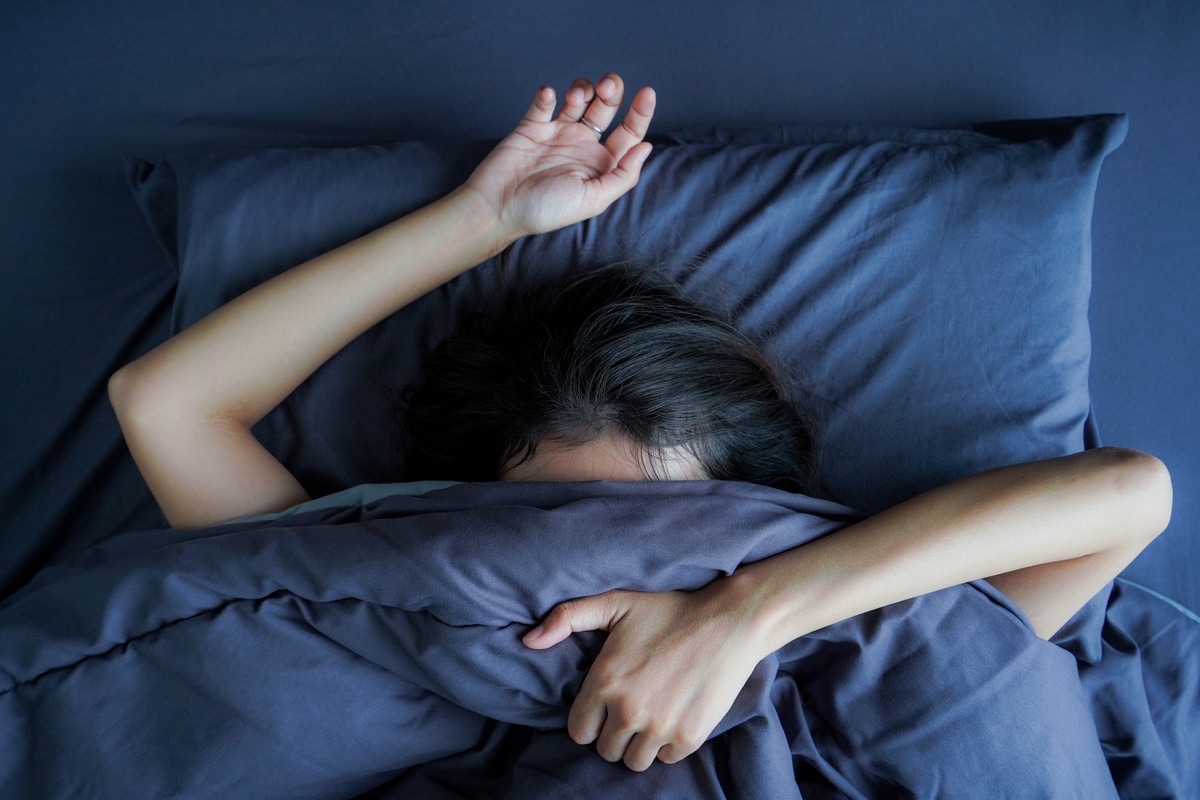
Nightmares are terrifying and distressing dreams and typically occur during light sleep in the rapid eye movement (REM) stage when the muscles first relax. They usually occur in the middle of the night or the early morning, just before waking hours.
Nightmares may cause sleep disturbances in some people and prevent them from having a good night’s rest. Some nightmare sufferers may also experience anxiety at bedtime for fear that if they fall asleep, they might have another nightmare.
If you’ve been struggling with bad dreams, here are some tips on how to avoid nightmares.
Is It Common for Adults to Experience Nightmares?
According to various statistics, although children most commonly experience nightmares, around six percent of adults also suffer from frequent nightmares.
Even though nightmares among adults may happen less often than in children, they may still cause several distressing side effects in adults, including:
- Anxiety
- Irregular sleep patterns
- Stress
- Fear
- Health conditions, including rapid heartbeat and high blood pressure
- Tiredness the next day
- Irritability and mood swings
What Causes Nightmares?
Nightmares can be a real problem when they keep you tossing and turning throughout the night and disturb your regular sleep pattern. There are several causes of nightmares, including:
- Medical conditions such as schizophrenia or PTSD
- Taking sleeping pills or other medications such as cold medicine
- Alcohol or drug use
- Watching a scary movie before bed
- Reading a scary book
- Suffering from depression, stress, or anxiety
- Sleep apnea
- Eating snacks right before bed
Some symptoms that are associated with nightmares may include:
- Difficulty falling back to sleep after a nightmare occurs
- Waking up from sleep in a panic because of a nightmare
- Waking up from a nightmare with a rapid or racing heartbeat
- Having powerful feelings of rage, despair, or depression
- The ability to remember gruesome details of your vivid nightmares
- Nightmares typically occur in the early morning hours of sleep
How to Avoid Nightmares and Get Better Sleep
If you suffer from nightmares, and they prevent you from getting a good night’s rest, several remedies can help you avoid nightmares, including the following.
Sleeping With Background Noise
Going to sleep to the sound of soft background noise can help prevent nightmares by allowing you to drift off into a deeper sleep where nightmares can’t reach you.
ASMR, or autonomous sensory meridian response, is a popular new trend used for relaxation worldwide.
ASMR viewers experience trance-like states of peace when they watch calming videos online made by using airbrushes against the microphone, whispers, or various word triggers, helping to relieve anxiety and promoting deeper sleep patterns.
Some other examples of pleasant background noise that may help reduce nightmares may include:
- Music playing softly in the background
- The sounds of a fan or air conditioner blowing
- Sounds of a humidifier gently blowing steam
- Using a white noise machine
- Listening to a recorded sound of waves, rain, or wind
- Downloading a soothing meditation app
Following a Consistent Bedtime Routine
Creating a nightly routine can be beneficial to help you relax and prepare for falling into a deep sleep, thus avoiding nightmares. Limiting your coffee, tea, and alcohol consumption in the evenings can also be helpful.
Another great idea to help avoid nightmares is cutting out snacks after supper. This tip can help prevent nightmares and promote quality sleep by reducing heartburn and indigestion or the need to use the washroom during the night.
Limiting your use of your computer or devices can also be beneficial in preventing nightmares. Instead, try an activity that is calming and doesn’t require too much brainpower or cause stress right before bed. Some examples may include:
- Going for a walk
- Taking a relaxing bubble bath before bed
- Reading a book that is calming and not scary
- Listening to soothing, soft music
- Watching a movie or television show, again nothing scary
- Exercising or stretching before bed
Maintaining Proper Sleep Hygiene
Developing good sleep hygiene is beneficial in promoting quality deep sleep and preventing nightmares. A common question that some people might ask themselves is, what exactly is sleep hygiene?
Sleep hygiene is a method developed by clinicians and used to help people who are light sleepers or have insomnia when trying to fall asleep at night. Some types of sleep hygiene practices that may prove to be beneficial to avoid nightmares may include:
- Using blackout curtains to promote a dark atmosphere
- Establishing a regular sleep schedule
- Limiting the use of daytime naps
- Avoiding stimulants in the hours before sleep time
- Avoiding bright lights before bedtime
- Eliminating the use of your bed for anything other than sleep or nighttime activities
Make Your Bedroom Appealing for Sleep
Having a bedroom catered to promoting quality sleep is also another practice that is beneficial for reducing nightmares. Arrange your sleeping quarters so that your bedroom is a comfortable temperature, dark, and quiet.
Alternatively, you can use a soft background noise playing in the background if it helps you sleep more comfortably than quietness. Other ideas of making your bedroom more appealing for quality, deep sleep may include:
- Using aromatherapy, such as lavender, or chamomile
- Painting your room in dark, relaxing colors
- Selecting a comfortable mattress
- Making sure your bedding is clean and smells fresh
- Getting rid of clocks’ insight to eliminate focusing on time
- Arranging your bed so that it isn’t facing the door
- Using comfortable pillows and bedding
- Keeping your room free from distracting clutter
- Powering off electronics at night an hour before bedtime
Practicing Meditation
Many studies have proven that the use of meditation practices helps to reduce fear and anxiety produced in the part of the brain known as the amygdala.
Regular meditation also promotes peace and relaxation, leading to deeper sleep and reducing the chances of having recurring nightmares.
Keeping a Dream Journal
Sitting a notebook and pen on your bedside table is a great idea to jot down your nightmares right after they occur. Include as much detail in your journal as you can remember, including the terrifying parts.
Recording your nightmares can help you keep track of recurring dreams and make sense of why you are continuously having the same nightmare again and again.
By processing the information recorded in your journal after you have had the chance to wake up, you might eliminate having that same nightmare.
When the information is in your waking memory, it may be less likely to scare you in a dream because your subconscious mind will remember it.
Another idea is to practice saying, “this is not real. It’s just a dream,” when you get to the scary parts of your journal. Hopefully, when the frightening part occurs in your dreams, your subconscious mind will remember that it’s just a dream.
Using Imagery Rehearsal Therapy
Imagery rehearsal therapy (IRT) is a commonly used method to avoid nightmares. This theory believes that nightmares are learned behavior, and therefore, it is possible to alter them.
One way to implement this theory is to read your dream journal and when you get to the frightening part of your nightmare, simply change the ending.
By doing so, you can also change the end of your scary nightmare when you’re asleep.
Avoiding Activities That Scare You
Taking part in scary ventures might seem adventurous and thrilling. However, if you are a person who suffers from nightmares, one of the essential tips to help prevent you from having them is to avoid taking part in frightening activities.
Types of scary activities that may cause nightmares to include:
- Reading thriller or horror books
- Watching a horror movie
- Going through a haunted maze
- Telling ghost stories
- Playing violent video games
The Bottom Line
One thing for sure is that today’s world is full of hectic work schedules, easy access to electronics, and plenty of video games or TV screens to watch. It’s no wonder that so many of us suffer from sleep deprivation and nightmares. By following the tips mentioned above, there is light at the end of the tunnel for a good night’s sleep free from nightmares.
If you have tried these home remedy techniques, and nothing seems to work for you, don’t give up hope just yet. Seeking medical advice is your next option. Schedule an appointment with your physician and provide them with your details and sleep history. Keeping a sleep journal is a great idea, so the doctor can determine the best course of treatment that’s right for you.










